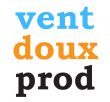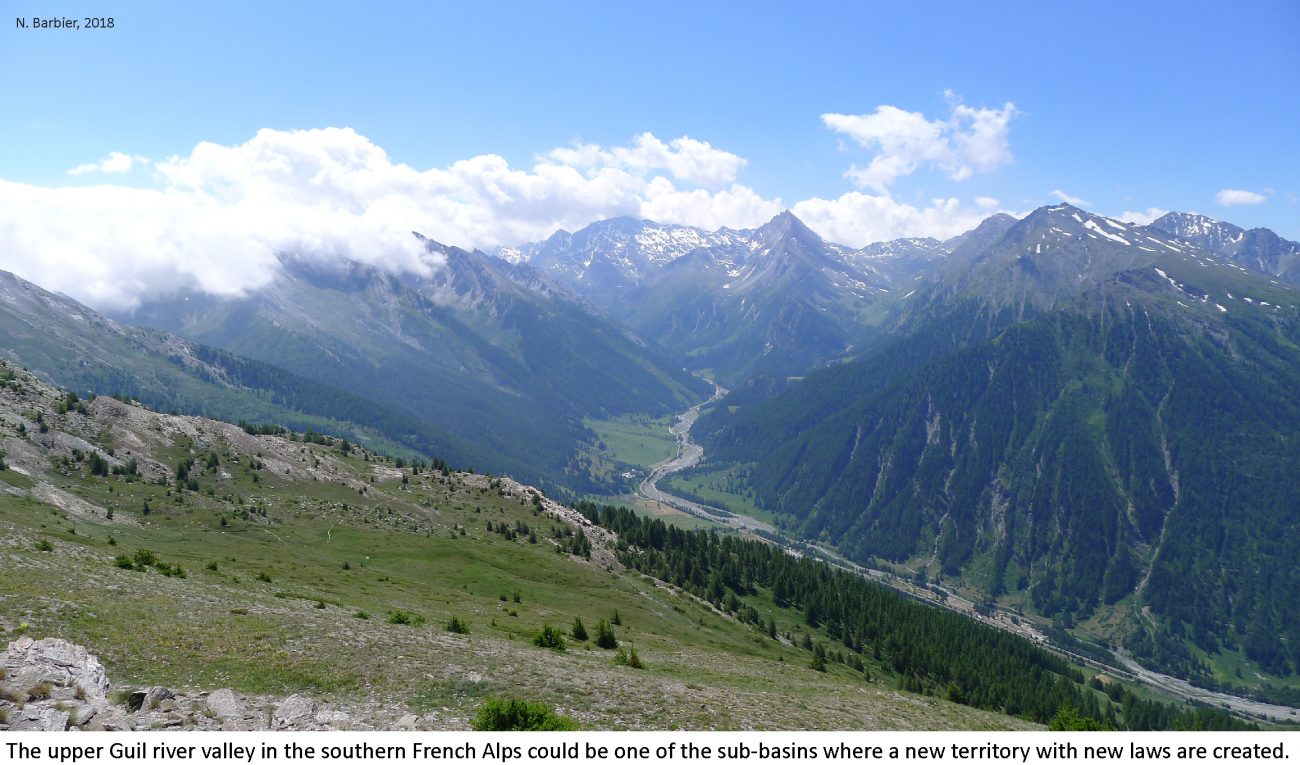FIRST, VARIOUS POLITICAL ENTITIES WITHIN A RIVER BASIN DISTRICT WOULD BE CREATED. A river basin district means « the area of land and sea, made up of one or more neighboring river basins together with their associated groundwater and coastal waters ». Currently in the European Union, the river basin district is « identified as the main unit for management of river basins » (European parliament and council of the EU, 2000, article 2).
Each newly created political entity would be based on a specific legal, philosophical and political system that its members would define. A given system would then be applied on a specific area inside the district. How would this work? The said district would be subdivided into sub-basins whose size and natural resources would be roughly proportional to the percentage of votes obtained by each political entity within the district. One or more existing watersheds (depending on their size and natural resources) would form the territory of each entity. Such a territorial reorganization would probably require to limit the number of political entities to ten or so. It would take decades for people to get together in these new territories in accordance with their choice and for these sub-basins to become fully functional.
Before that, a transitional political process could be put in place. During this period, the political entities would take time to define their own laws dealing with working conditions, entrepreneurship, wages, the banking system, real estate prices, environmental protection, etc.
Individuals, families or groups could get involved in preparatory projects. One of them could target the purchase of affordable agricultural lands. The goal would not have to be full-time farming. Instead, people could try to multiply small organic fruit and vegetable gardens, small-scale livestock operations and restore wild ecosystems here and there. In 2016 in France, the average price of one square meter of farmland was 0,60 euro. It was 0,40 euro for woodland. With permaculture, a garden of just 100 square meters can produce more than 500 kilograms of fruit and vegetables per year. The more efficiently people organize at the local level with a spirit of fairness and solidarity, the better and quicker the results. This project first requires to identify willing sellers among landowners, including municipalities. People would meet with frustrating refusals from landowners. But patience and tact could work over time. This type of land project is all the more arduous that it is better to purchase parcels as close to each other as possible. In this case, geographic proximity fosters both environmental protection and solidarity. This endeavor could be a good start for people who want to build new territories based on genuine economic fairness and respect for the environment (Gouin, 2016; LE-PRIX-des-terres.fr, 2017 [a] and [b]).
Going back to my idea of elections on a district-wide scale, these lands purchased by people would make up a part of certain political entities’ territories after the elections. More generally, what happens once political entities get their territories following the transition and vote? Some current laws could remain in effect, whether they be about health care, social security, public transportation, children’s rights or other legal matters. New laws on a sub-basin-wide scale would eliminate many economic, environmental and social conflicts or deadlocks due to myriads of current laws people can’t stand anymore or feel disgusted with. The different political groups living in different sub-basins could live side by side peacefully. The rates of in-migration and out-migration in the various sub-basins would probably vary widely according to the local policies and prevalent opinions on this matter.
Most current pollutions, economic and social injustices could disappear in certain sub-basins if the following conditions are met :
- Economy – The economy as a whole would be based mostly on small-scale employee-owned businesses and companies, whether they produce food, clothing, energy (solar, wind, hydrokinetic) and non-motorized individual vehicles for example or provide services in construction, recycling, etc.
- Working conditions – No wage could be one and a half time higher than the minimum wage. This wage difference would rest not on the type of job but on its quality, when applicable. The quality of work would be assessed by colleagues, and not by a boss, in such a way that colleagues could assess one another. Within workplaces, a fair sharing of decision-making power between all employees would .
- Food production – Organic agriculture and local food systems would be systematized. For people committed to becoming farmers, they could use agricultural lands free of charge and large enough to make a decent living. For families committed to growing organic fruit and vegetable gardens, they could use parcels of land free of charge in order to produce a significant part of the fruit and vegetables that they consume.
- Environment – Wildlife (including large carnivores) and biodiversity conservation and restoration would be prioritized over at least one quarter the size of the sub-basin’s area.
- Housing – Housing with minimized ecological footprint would become the norm rather than the exception. This type of housing would involve either dry toilets or bio controlled litter toilets, capped water supply, minimized building energy use as well as size limit (e.g., no more than 100-120 square meters for a family of four). It would either be built to last centuries or light (e.g., tiny house, yurt). People would be protected from poor quality housing by law. In France, purchase and rental prices of housing would not exceed one-third of the current national average prices. In 2017 in France, people have to pay an average of 1,840 euros to purchase one square meter of a house; for an apartment, they need to spend 3,390 euros per square meter (Efficity, 2017). Current prices are largely driven by the law of supply and demand and speculation. Instead, prices would differ according to the quality of housing and its durability. The price of new housing would also fluctuate based on construction work, the materials used and their transportation.
- Transportation – Public transportation (e.g., bus, train, trolleybus, tram) would be fueled by wind, solar and hydrokinetic power. Most existing roads would be exclusively reserved for both public modes of transportation and non-motorized individual vehicles. The only motorized vehicles that could run anywhere anytime would be emergency vehicles.
This kind of territory would not inhibit the diversity of identities which largely stems from other forms of diversity: that of ecosystems and their components, of regional productions, of art and craftsmanship, of architecture and landscaping, of an infinity of cultural subtleties.
It is neither utopia nor daydream. We have got everything we need to get there, starting with our patience, consistency and above all our intelligence that we need to respect without fearing where it leads us and let it flow freely.
EP and CEU, 2000. Directive 2000/60/EC of the European Parliament and of the Council of 23 October 2000 establishing a framework for Community action in the field of water policy. 26/9/2017.
Note: This article is also part of the conclusion of my investigation entitled The European union of water polluters (11/2017)
ventdouxprod 2018, all rights reserved

